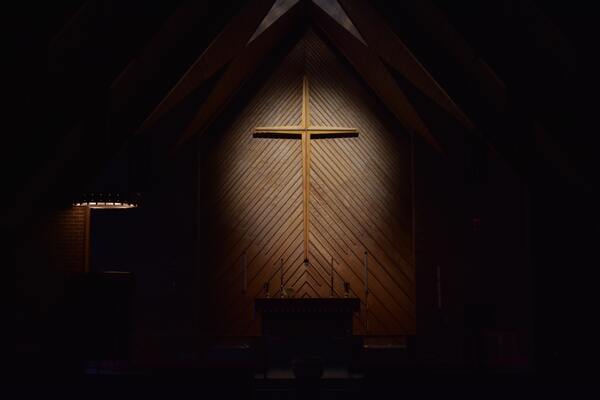By Pastor Andrews - Mar 30, 2021 #easter #sacrifice #self
The Resurrection Principle

In John 12, Jesus used a grain of wheat to illustrate what I’m calling the resurrection principle: “Truly, truly, I say to you, unless a grain of wheat falls into the earth and dies, it remains alone; but if it dies, it bears much fruit.” (John 12:24) To state the principle succinctly, the only way to truly live is to die to the self-life, taking up our cross daily to follow in Jesus’ steps.
This principle is stated in slightly different forms several times in the gospels:
• “For whoever would save his life will lose it, but whoever loses his life for my sake will find it.” (Matthew 16:25)
• “Whoever seeks to preserve his life will lose it, but whoever loses his life will keep it.” (Luke 17:33)
• “For whoever would save his life will lose it, but whoever loses his life for my sake and the gospel’s will save it.” (Mark 8:35)
• “Whoever loves his life loses it, and whoever hates his life in this world will keep it for eternal life.” (John 12:25)
Whatever is so conspicuous in Scripture certainly should have major bearing on the way we live our lives in this world. Yet sadly, the principle seems lost on many Christians who live self-absorbed lives and consequently never experience the power of Christ’s resurrection. It’s not hard to see how this happens, given that we live in a Western culture that is saturated with individualism, holding as paramount “my” rights, interests and happiness. Jesus’ principle runs counter to what our culture accepts as a fundamental truth.
Yet the pursuit never stops as the world, and many professing Christians, continue to reach for self-help, self-esteem, self-discovery, self-reliance, self-actualization, and self-assertiveness. Ironically, it is this emphasis on self that is at the core of much of the misery in this world. What Jesus said is so true. The seed that never falls into the ground and dies abides alone. It can never do what it was meant to do. Abiding alone refers to a sense of being incomplete, unfulfilled, and yes, lonely.
Abiding alone refers to a sense of being incomplete, unfulfilled, and yes, lonely.
F.B. Meyer, a 19th century pastor and evangelist, made the following observation that still rings true today: “Many people complain of lonely and solitary lives. They account for their condition by supposing it to be due to the failure of other people. It is however attributable to the fact that they have never fallen into the ground to die but have always consulted their own ease and well-being. They have never learned that the cure of loneliness comes from sowing one’s self in a grave of daily sacrifice.”
The question we need to answer is how do we “sow ourselves in a grave of daily sacrifice?” Jesus shows us the way in Luke 14, where we find the process for living in resurrection power. It involves three things:
1. The subordination of every human relationship.
“If anyone comes to me and does not hate his own father and mother and wife and children and brothers and sisters, yes, and even his own life, he cannot be my disciple.” (Luke 14:26) In very strong language, our Lord demands that our love for him be supreme. Matthew 10:37 presents the same truth a different way: “Whoever loves father or mother more than me is not worthy of me, and whoever loves son or daughter more than me is not worthy of me.” Only as we love Christ above all other rivals can we truly love family and others as we ought.
2. The submission of every worldly ambition.
Whoever does not bear his own cross and come after me cannot be my disciple. (Luke 14:27) Bearing a cross means dying to self and all your self-oriented plans and personal desires. It is the repudiation of your agenda for the sake of seeking first the kingdom of God. It’s praying the prayer Jesus prayed in the garden as he faced the cross, “not my will, but your will.”
3. The surrender of every earthly possession.
So therefore, any one of you who does not renounce all that he has cannot be my disciple. (Luke 14:33) How easy it is to set our affection on things, but the grave of daily sacrifice means we live as stewards, recognizing God owns us as well as everything we possess. It’s living with the understanding that “a man’s life does not consist in the things he possesses.” (Luke 12:15)
What better way to prepare for Easter than falling into the ground and dying! Let’s live in the power of Christ’s resurrection and experience what Chris Tomlin’s song, “The Wonderful Cross,” says so well:
Oh the wonderful Cross, oh the wonderful Cross
Bids me come and die and find that I may truly live.